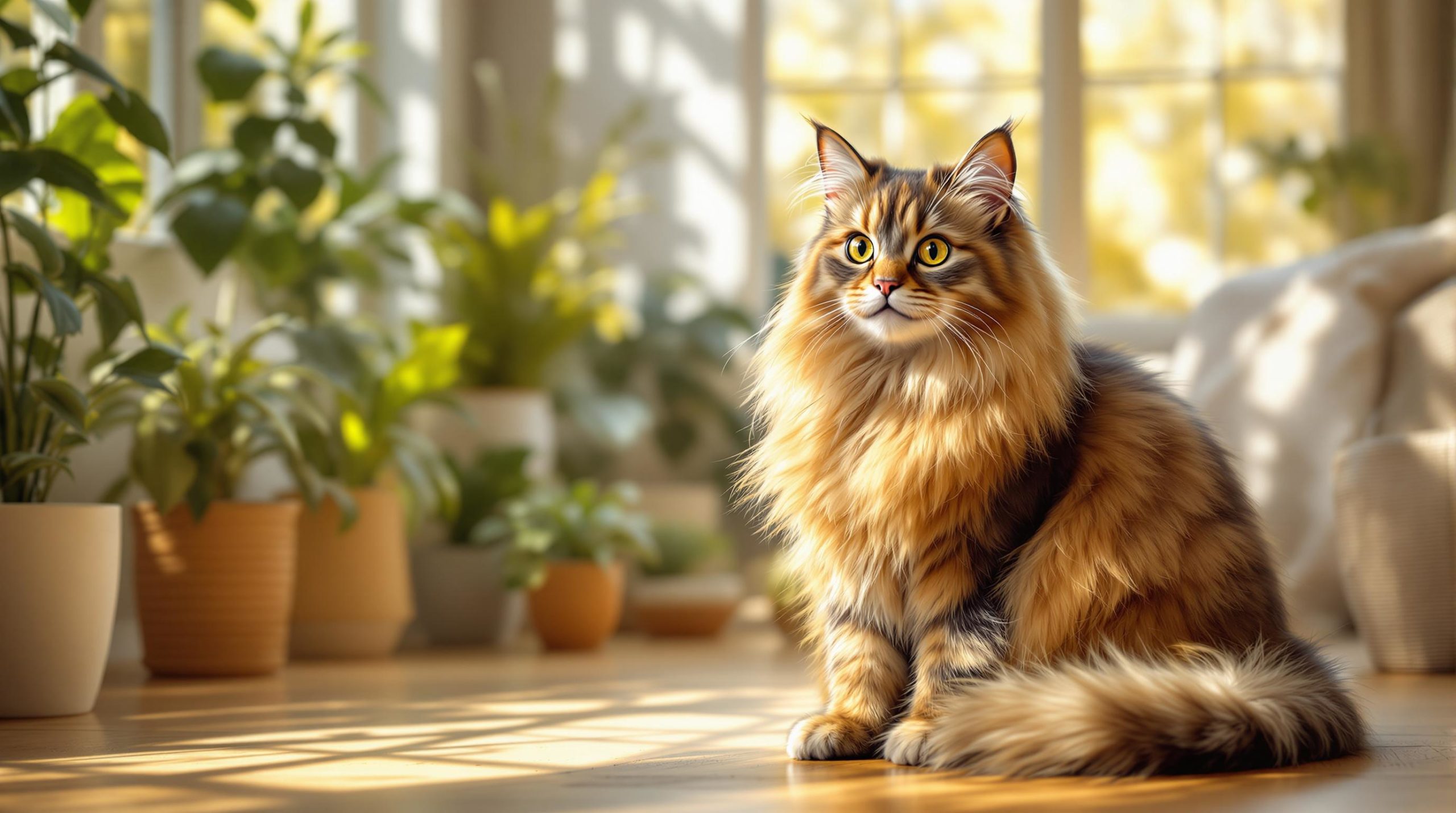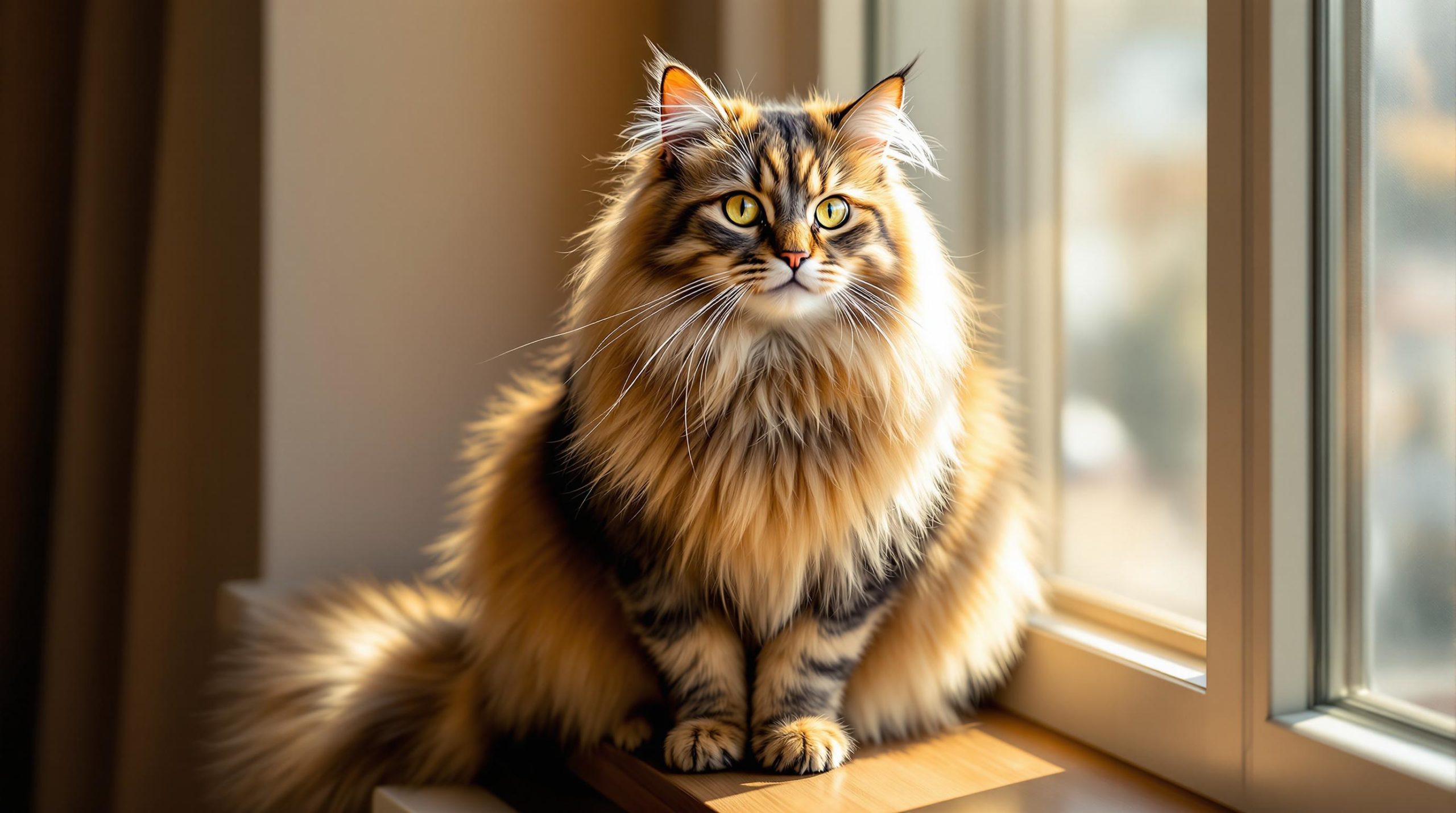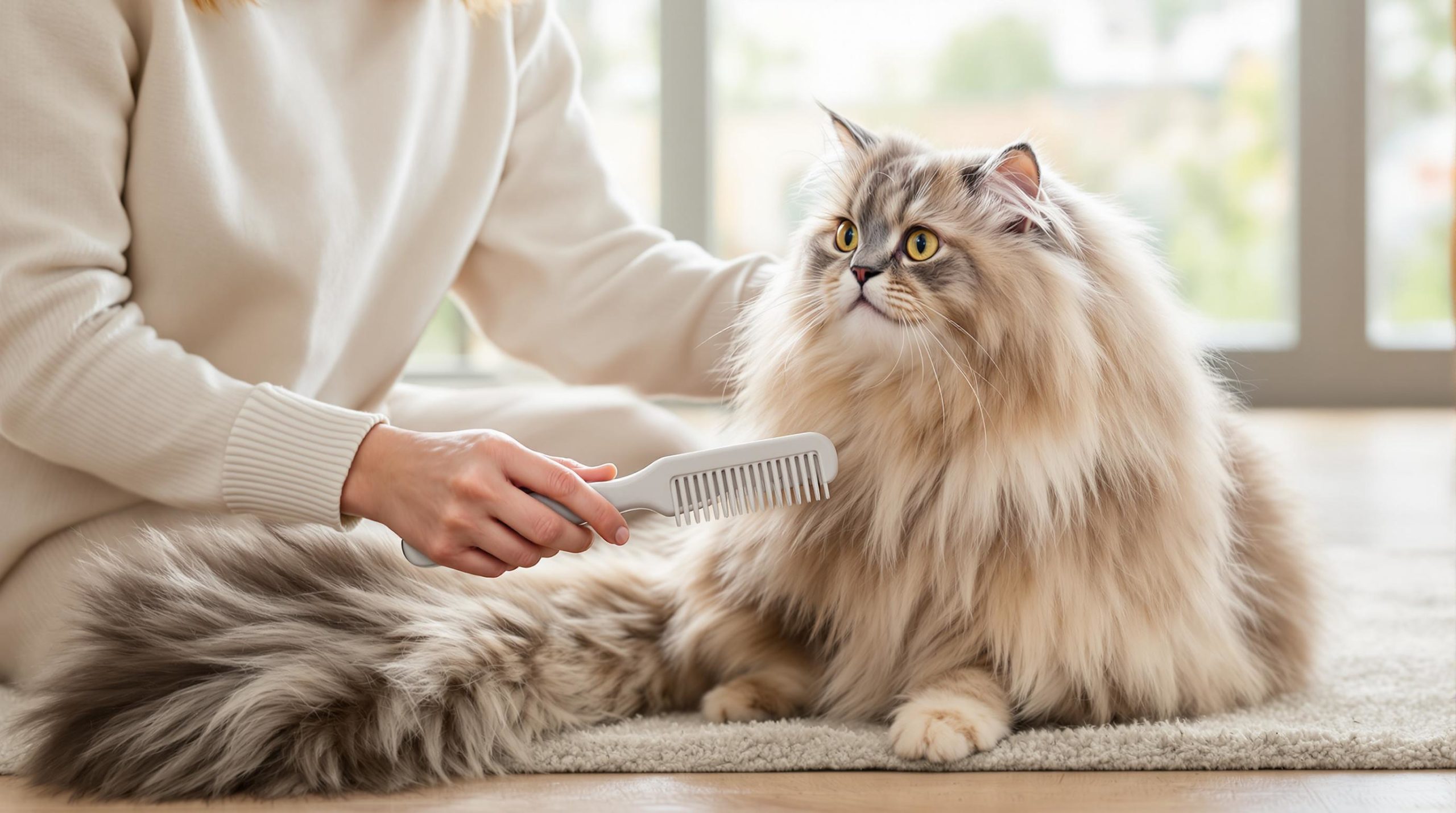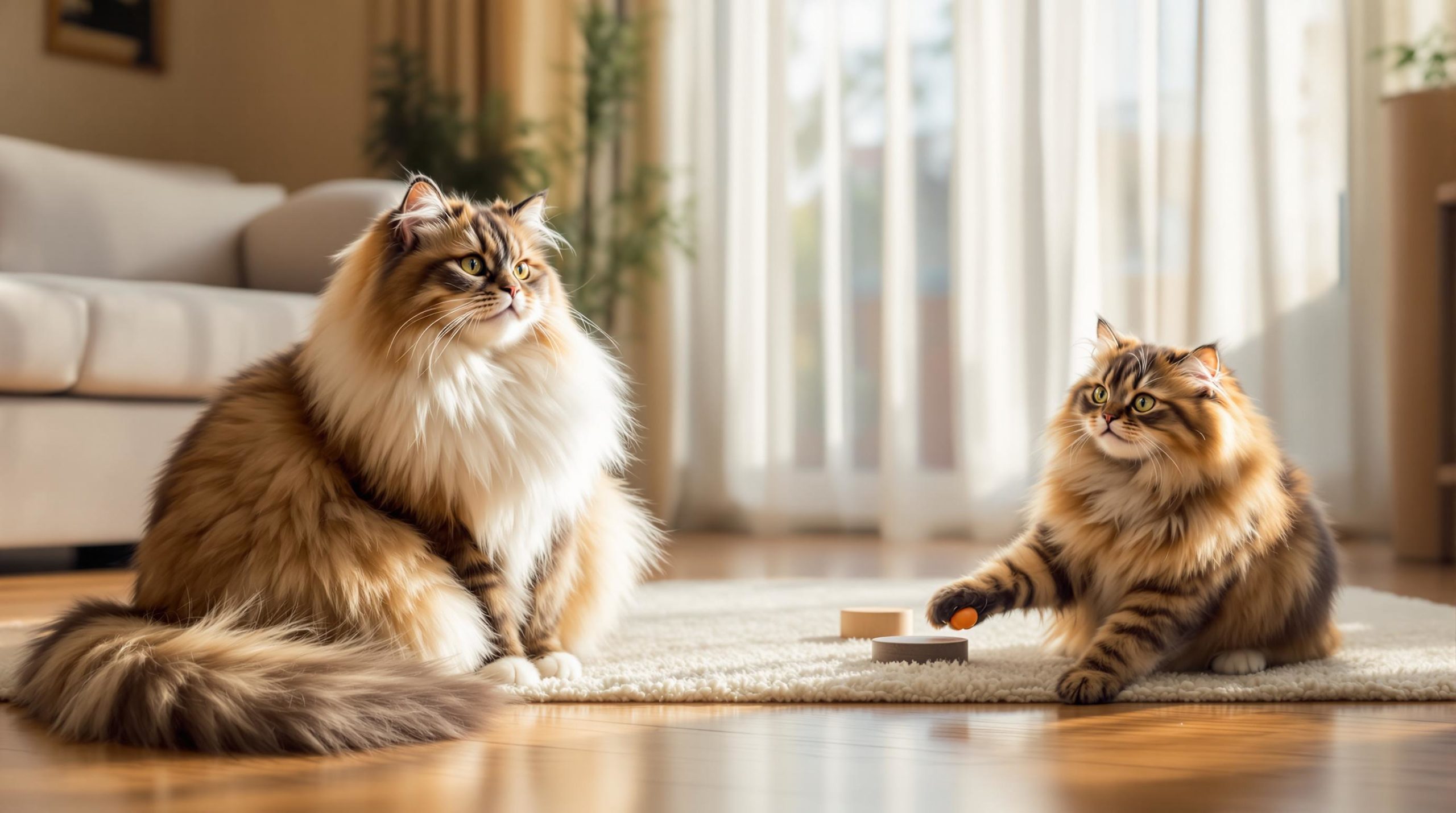Are maine coon cats truly hypoallergenic?

The Maine Coon cat, often admired for its grandeur and gentle nature, is surrounded by a fascinating question: Are Maine Coon cats truly hypoallergenic? This query is particularly vital for allergy sufferers who dream of welcoming a feline companion without the accompanying sneezes and sniffles. Renowned for their thick fur, tufted ears, and expressive eyes, Maine Coons are iconic among cat breeds. Yet, their reputation as potentially allergy-friendly pets requires a closer look into the science of animal health and allergen production. Understanding the nuances of their coat composition, grooming behaviors, and allergenic proteins will help clarify the real picture behind these majestic giants, especially as allergy concerns shape pet care decisions today.
The Science of Cat Allergies and the Role of Fel d 1 Protein in Maine Coons
At the core of cat allergies lies a tiny but powerful protein known as Fel d 1, primarily responsible for triggering allergic reactions in sensitive individuals. This protein is produced in cat saliva, skin glands, and dander — microscopic skin flakes that cats shed regularly. When cats groom themselves, Fel d 1 coats their fur, eventually dispersing into the environment through shedding and contact, making it a ubiquitous allergen in many households.
For Maine Coons, their thick, triple-layered coat, which evolved to withstand harsh winters in 19th-century Maine, plays a notable role in how allergens circulate. This dense fur, combining a dense undercoat and a coarser, water-repellent outer layer, can trap Fel d 1 proteins more effectively than shorter-haired cats. Consequently, shedding periods, particularly twice annually during seasonal changes, result in significant allergen release, complicating the allergy scenario.
One of the core myths circulating around Maine Coons is that they are hypoallergenic cats. In reality, no cat breed is entirely hypoallergenic. Research published recently in the Journal of Allergy and Clinical Immunology indicates that although Maine Coons tend to produce Fel d 1 levels varying widely between individuals, the average production is not significantly lower than many other breeds. The variability means some Maine Coons may produce less Fel d 1, making them potentially easier to tolerate for those with mild allergies, but others may trigger severe reactions.
- Fel d 1 presence: Produced in saliva and skin glands, transferred to fur.
- Coat dynamics: Thick triple coat traps allergens; seasonal blowouts increase dander spread.
- Grooming habits: Maine Coons groom less often than some breeds, possibly reducing saliva distribution but not eliminating allergens.
| Factor | Impact on Allergens in Maine Coons |
|---|---|
| Thick Coat | Traps Fel d 1 protein in undercoat, increasing allergen load during shedding |
| Grooming Frequency | Less frequent grooming means saliva-bound allergen spreads unevenly |
| Shedding Seasons | Twice-yearly shedding increases airborne and environmental allergens |
Managing felines with this knowledge allows for better planning in pet supplies, pet grooming routines, and environmental control to optimize animal health and minimize allergic reactions. For more insights on managing allergies with Maine Coons, visit this dedicated guide.

Why Maine Coon Cats Are Often Misunderstood as Hypoallergenic Cats
The belief that Maine Coon cats could be hypoallergenic stems from their unique characteristics and grooming habits, but this perception misrepresents allergy science and feline biology.
First, their magnificent fur can be misleading. The dense, luxurious coat does trap allergens, but it also facilitates greater accumulation of dander and Fel d 1. Owners might think the fur protects them because it seems to hold allergens close to the cat, limiting airborne particles. However, during intensive shedding periods, this fur releases large amounts of allergenic particles into the environment, exacerbating symptoms.
Second, the grooming habits of Maine Coons play a confusing role. These cats spend approximately 15 to 30 percent of their time grooming, which spreads Fel d 1-laden saliva on their fur. The relatively lower grooming frequency compared to short-haired breeds may slightly reduce saliva distribution, yet it certainly doesn’t stop allergens from accumulating on their coats. The effect varies between individual cats, making some Maine Coons somewhat more tolerable than other breeds, but not hypoallergenic.
Finally, the social temperament of Maine Coons – often described as eloquently dog-like with affectionate and playful behavior – can invite close contact and physical interactions, which magnify allergen exposure even further. Close cuddling, petting, and playing lead to greater allergen transfer from the cat’s coat and dander to the human environment.
- Misconception #1: Thick fur means less allergens escaping.
- Misconception #2: Lower grooming means fewer allergen spread.
- Reality: Close human contact increases allergen exposure despite these factors.
| Myth | Explanation | Reality Check |
|---|---|---|
| Fur traps allergens and prevents spread | Thick coat holds allergens tightly | Seasonal shedding releases trapped allergens widely |
| Low grooming reduces allergen presence | Less saliva on fur means less protein spread | Allergens still abundant due to accumulated dander |
| Hypoallergenic implies no allergic reaction | Some breeds produce less Fel d 1 | All cats produce Fel d 1; none are strictly hypoallergenic |
Learn more about these common myths and the truth behind hypoallergenic claims at myths of Maine Coons and hypoallergenic cats.
Effective Pet Grooming and Environmental Strategies to Manage Allergies with Maine Coons
Although Maine Coon cats are not hypoallergenic, allergy-friendly pets can be maintained through dedicated care and the strategic use of pet accessories and supplies.
Grooming is the cornerstone of allergy management in long-haired breeds like Maine Coons. Daily or at minimum, bi-weekly brushing with a stainless steel comb or a Furminator type deShedding tool can remove loose fur and reduce dander spread. This grooming routine captures Fel d 1 proteins held within the fur before they become airborne. Bathing every 4 to 6 weeks with hypoallergenic pet shampoo helps diminish allergens embedded in the coat and skin oils, further reducing allergen presence.
Environmental controls are equally essential. Using HEPA air purifiers with carbon filters in main living and sleeping areas significantly reduces airborne allergens. Models like the Bissell Air400 or Levoit Core 300 are recommended for their effectiveness in capturing fine particles. Establishing cat-free zones, particularly bedrooms, minimizes allergen exposure during sleep, when symptoms might exacerbate.
- Grooming: Regular brushing, de-shedding, and bathing routines prevent allergen buildup.
- Air purification: HEPA air purifiers filter microscopic Fel d 1 particles efficiently.
- Cleaning habits: Weekly vacuuming with HEPA-filter vacuums and microfiber dusting keep environments allergy-friendly.
- Area restrictions: Creating cat-free zones to reduce allergen hotspots in the home.
| Method | Benefit | Recommended Tools or Products |
|---|---|---|
| Regular Grooming | Reduces loose hair and dander accumulation | Furminator deShedding Tool, hypoallergenic shampoo |
| Air Purification | Filters airborne allergens for cleaner air | Bissell Air400, Levoit Core 300 HEPA Air Purifiers |
| Cleaning | Removes settled allergens from surfaces | HEPA-filter vacuum, microfiber cloths |
| Cat-Free Zones | Limits allergen spread in sleeping areas | Designated rooms or furniture covers |
Committing to a holistic pet care approach transforms challenges of cat allergies into manageable aspects of living with a Maine Coon. For more detailed pet grooming tips and allergy prevention strategies, the resource provides comprehensive advice.

Comparing Maine Coons with Other Cat Breeds: Allergy Risks and Pet Care Needs
When seeking an allergy-friendly pet, understanding how Maine Coons stack up against other cat breeds is invaluable. Some breeds have been reputed for their lower allergenic potential due to differences in Fel d 1 production, shedding frequency, or grooming habits.
Consider the following comparison of Fel d 1 levels, shedding, grooming needs, and overall allergy risks:
| Breed | Fel d 1 Level (µg/g dander) | Shedding Level | Grooming Frequency | General Allergy Risk |
|---|---|---|---|---|
| Maine Coon | 4.2 | High | Weekly brushing | Moderate to High |
| Siberian | 1.5 | Moderate | Weekly brushing | Lower |
| Russian Blue | Low | Low | Weekly brushing | Lower |
| Sphynx | Moderate | None | Daily skin cleaning | Moderate |
| Balinese | 2.1 | Moderate | Bi-weekly brushing | Moderate |
While Siberian cats have a Fel d 1 variant less recognized by human immune systems, sometimes labeled as more allergy-friendly, Maine Coons carry a moderate allergen load requiring proactive management. Their affectionate nature and moderate grooming frequency make them a favorite among many pet owners despite allergy concerns.
- Breed selection: Essential for matching allergy profiles and lifestyle.
- Grooming commitment: Higher grooming needs with Maine Coons compared to hypoallergenic breeds.
- Allergy control: More challenging with high-shedding cats without diligent care.
Prospective owners should always spend ample time with the specific cat breed to gauge personal sensitivities before adoption. Explore more about Maine Coons’ unique traits like their striking blue eye genetics and learn about myths that surround them at this informative site.

Advanced Allergy Solutions and Medical Support for Maine Coon Owners
For individuals with persistent allergic reactions to Maine Coons, the integration of advanced pet care techniques and medical interventions can greatly improve quality of life and animal health.
Dietary innovations such as Fel d 1-neutralizing cat food have emerged as notable solutions. For example, Purina Pro Plan LiveClear incorporates egg protein antibodies that bind and neutralize Fel d 1 in cat saliva, reducing active allergen levels significantly within weeks.
Medical management options include immunotherapy (allergy shots), which desensitize the immune system over time, leading to fewer and milder allergic reactions. According to the American Academy of Allergy, Asthma & Immunology, immunotherapy boasts up to an 85% success rate in patients with cat allergies.
Additional recommendations for Maine Coon owners include consistent dental care to combat periodontal disease, a relatively common condition in this breed, and regular veterinary screenings for genetic diseases like hypertrophic cardiomyopathy and polycystic kidney disease to maintain optimum feline health.
- Fel d 1-neutralizing diets: Reduce allergen production directly at the source.
- Immunotherapy: Long-term allergy symptom reduction through desensitization.
- Veterinary care: Regular screenings for breed-specific health issues to support overall wellbeing.
- Medication: Antihistamines and nasal sprays for symptom relief when needed.
| Solution | Purpose | Effectiveness |
|---|---|---|
| Fel d 1-Neutralizing Diet | Reduce active allergen in saliva | Cut allergen levels by up to 47% in 3 weeks |
| Immunotherapy | Desensitize immune responses | Success rate: 80-85% |
| Antihistamines and Nasal Sprays | Symptom management | Effective for acute relief |
| Regular Veterinary Care | Prevent breed-specific diseases | Essential for longevity and health |
By combining tailored feline nutrition, medical treatments, and dedicated pet care savvy, even allergy-prone pet owners can nurture a loving bond with their Maine Coons. For extended advice on allergy-friendly pets and grooming, explore reliable sources like Maine Coon Life.
Frequently Asked Questions About Maine Coon Cats and Allergies
- Q1: Are Maine Coon cats truly hypoallergenic?
The short answer is no. While some Maine Coons may produce lower levels of the allergenic Fel d 1 protein compared to other breeds, no cat is completely hypoallergenic. - Q2: Can grooming reduce allergies caused by Maine Coons?
Absolutely. Regular grooming including brushing and bathing significantly decreases dander and allergen spread, improving tolerance levels in many allergy sufferers. - Q3: Are there any medical options to manage cat allergies?
Yes, immunotherapy and antihistamines can reduce symptoms and improve quality of life for those allergic to cats including Maine Coons. - Q4: Do kittens produce fewer allergens?
Fel d 1 production begins around 8 weeks of age, and although levels may be lower in kittens, allergenic protein increases as cats mature. - Q5: Is it beneficial to create cat-free zones in the home?
Definitely. Limiting Maine Coon access to bedrooms or certain rooms reduces allergen exposure and helps allergy management strategies.